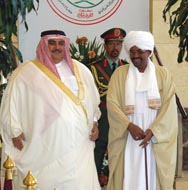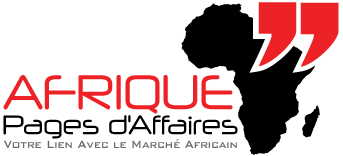>> Business Guide Africa > Arab Investments Into Africa
AFRICA ATTRACTS ARAB INVESTORS
Many Arab investors are keen to invest in African countries that provide attractive returns of investments...
An economic boom in the Middle East countries has resulted in Arab investors spreading their investments to north and sub- Saharan Africa in search of the high returns that are becoming harder to find in saturated western markets.
With banks and financial institutions in the Arabian Gulf overflowing with liquidity, Middle investors are keen to expand their investments into new markets. Consequently, there have been many joint ventures, mergers, acquisitions and reverse takeovers in Africa that are backed by capital surpluses and local and international loans secured by land holdings in the Gulf.
“Many of these companies are generating very high cash returns,” says Walid Shiabi, head researcher at the Dubai-based Shuaa  Capital. “And in a lot of cases, they are beginning to outgrow their own markets and are looking elsewhere to expand.”
Capital. “And in a lot of cases, they are beginning to outgrow their own markets and are looking elsewhere to expand.”
The rapid growth of Middle Eastern economies has provided investors an opportunity to reduce their exposure to domestic markets by expanding into the African markets and beyond. Many deals in the African property and telecoms sectors have dominated the news in recent years. However, there has also been substantial expansion into other sectors in African countries like hotels, supermarket chains, airlines, transport logistics and commercial and investment banks.
PROPERTY & TOURISM
Rapid growth in the South African tourist sector attracted International Financial Advisors (IFA), a Dubai-listed property group, to buy a 50 per cent stake in the Zimbali Coastal Resort on KwaZulu-Natal’s north coast, with a plan to invest $100 million over the next ten years – one of the biggest tourism investments ever undertaken in the southern African region. The deal followed hot on the heels of IFA’s acquisition of the Zanzibar Beach Hotel for $50m, as part of the company’s long-term strategy of building up its African holdings.
“This is a substantial commitment for us,” said Phil de Sylva, Vice President of Acquisitions for IFA Hotels & Resorts. “Our development plans are very ambitious. Building 2,500 residential units, hotels and golf courses is a huge undertaking. But the investment in Zimbali has so far been a phenomenal success.
“There have been difficulties. Dealing with South African labour laws and black empowerment legislation can be a challenge for an offshore company. But it is just something you have to learn to deal with. The company is on a very aggressive acquisition path. We are already looking at three or four other potential acquisitions and there is no limit to the amount of investment we are prepared to make in the country.”
IFA Hotels & Resorts has also announced a 209 per cent  increase in profits. It has since bought an 80 per cent stake in Yotel, a luxury small-room hotel concept due to open at London’s Heathrow and Gatwick airports. Talal Jassim al-Bahar, the groups Director, now wants to bring the idea to Africa. “Our expectation is big in South Africa,” he said. “I think we’ll be one of the biggest real estate companies in the country. It’s an untapped region.”
increase in profits. It has since bought an 80 per cent stake in Yotel, a luxury small-room hotel concept due to open at London’s Heathrow and Gatwick airports. Talal Jassim al-Bahar, the groups Director, now wants to bring the idea to Africa. “Our expectation is big in South Africa,” he said. “I think we’ll be one of the biggest real estate companies in the country. It’s an untapped region.”
The recent announcement by Istithmar, the Dubai-based investment holding company, and London & Regional Properties, the UK investment group, that it had bought Cape Town’s prestigious V&A Waterfront for R7.04 billion ($910m), suggests that other Middle East investors are thinking along similar lines.
In one of the biggest property deals ever undertaken in North Africa, Emaar Properties, the world’s richest real estate firm, and Dubai Holdings, the state-owned enterprise, both based in the United Arab Emirates, unveiled a $9bn scheme to transform the Moroccan tourist industry over the next ten years, with a series of tourist destination and residential investment developments in Rabat, Marrakesh, Casablanca and Tangiers.
Nasser Mohammed Al Kharafi, the Chairman of the Al-Kharafi Group, the Kuwaiti-based construction company, is the master developer for the multibillion dollar Port Ghalib scheme on the Egyptian Red Sea, which will see the development of an 18 kms stretch of coastline over the coming decade.
On the other hand, Emaar Properties is building the $4bn Uptown Cairo project – a 1,544-acre tourist development with 3,000 hotel rooms. It has also recently won a $175m land auction to build two five-star hotels, a marina, golf course and shopping centre at Al Alamein on the Egyptian Mediterranean coast.
“As an emerging market with strong fundamentals, Egypt is of key importance to Emaar Properties in building the company’s international portfolio,” says Nader Mohammed, Emaar Managing Director. “This reflects Emaar’s commitment to its Vision 2010 of becoming one of the world’s most valuable companies.”
AFRICAN INVESTMENTS
The new wave of Arab investment is accelerating the notion of a single African market that might otherwise have taken much longer to develop. Few of these pioneers have been more emphatic about creating a ‘continental brand’ than Celtel, the Netherlands-based mobile phone operator bought by Kuwait’s Mobile Telecommunications Company (MTC) last year for $3.4bn.
“Building a pan-African brand lies at the core of our corporate strategy,” says Marten Pieters, Celtel’s CEO. “Africa’s borders are colonial, they do not reflect economic or linguistic relations, so there is a lot of inter-country traffic, and that is where the opportunities lie.
“Calls between Kinshasa and Brazzaville are still routed via Europe. We think that there is a big opportunity to build a genuinely African communications system, so we are focusing on establishing cross-border links, which is why we offer subscribers in Kenya, Uganda and Tanzania discount rates from normal international tariffs.”
MTC’s Kuwaiti shareholders have deep pockets. The company, which has a presence in 15 African countries, poured $750 million into Tanzania alone. It is  currently spending a similar amount boosting the capacity of its Nigerian subsidiary, and is looking for further expansion opportunities in Senegal, Ghana, Angola and Ethiopia.
currently spending a similar amount boosting the capacity of its Nigerian subsidiary, and is looking for further expansion opportunities in Senegal, Ghana, Angola and Ethiopia.
“There is no doubt in our minds that Nigeria will be a big growth area,” says Pieters. Most telecom analysts agree. Many African markets have less than ten per cent mobile penetration, and many of them are forecast to double by the end of the decade – especially if the investment needed to boost oversubscribed capacity materialises.
Likewise, MTN, the Kuwaiti-owned mobile provider that began operations in South Africa in 1994, has been expanding across Africa and beyond. It paid a whopping $5.5 billion for Lebanon’s Investcom, making it the largest mobile phone operator in the Middle East and Africa region, and recently merged with Yemen’s Spacetel, boosting its subscribers to 30 million. MTN has courted controversy by expanding into countries with a high-risk profile. Through Investcom it has franchises in Syria, Afghanistan and Sudan. Now it is targeting Iran.
But Phuthuma Nhleko, MTN’s CEO, is confident that the risks of operating in some of the world’s toughest business environments are outweighed by the potential for growth. He insists that MTN proved the skeptics wrong by investing in Nigeria, which is now the company’s second largest earner after South Africa.
MTN is not alone in making pioneering forays into Iran and other ‘volatile markets’. PetroSA, Sasol, Mintek, Bateman Engineering and Standard Bank have also followed suit. Ironically, the collapse of the Doha Round of trade liberalisation talks appears to have given impetus to the trend towards greater economic ties between Africa and the Middle East.
“The time is ripe for Arab countries to integrate their economies with Africa,” says a confident and upbeat Rachid Mohammed Rachid, Egypt’s Trade and Industry minister.

Annoncez dans le magazine
Magazine en ligne
Télécharger Annuaires Afrique
Ajouter votre Profil de l'entreprise
-
 Arabian Jerusalem Company:
Arabian Jerusalem Company:
L'un des principaux fournisseurs de machines et de matériel de construction neufs et d'occasion. Les produits incluent des Grues, Jantes Chargeurs, Bulldozers, niveleuses, rouleaux compresseurs, Tractopelles JCB, Pelles, générateurs, compresseurs d'air, etc .. Bétonnières -
 Global Auto Parts:
Global Auto Parts:
Fournisseur de toute une gamme de pièces d'automobiles après-vente pour une grande variété de voitures. Recherche distributeurs et des agents en Afrique... -
 World Wide Auctioneers:
World Wide Auctioneers:
Auctioneers de machines neuves et d'occasion contruction, de machines industrielles, de transport et d'équipements lourds. World Wide Auctioneers est également l'agent pour Unic Grues et un nom de renommée mondiale dans le dépôt de machines et d'équipements lourds ... -
 Hollywood Style Cosmetics:
Hollywood Style Cosmetics:
Gamme complète de produits cosmétiques qui sont extrêmement populaires auprès des acheteurs africains. La société offre des promotions pour les clients africains et la recherche de distributeurs en Afrique... -
 Solite Batteries:
Solite Batteries:
Batteries Solite gagnent en popularité dans les marchés africains en raison de leur longue durée de vie et des prix compétitifs. Contactez directement les concessionnaires et économiser de l'argent
-
 Marchands de pneus à Dubaï
Marchands de pneus à Dubaï
Contactez-exportateurs à Dubaï spécialisée dans les pneus, les tubes et les batteries. Offres spéciales pour les acheteurs africains offerts... -
 Le marché des pneus en Afrique
Le marché des pneus en Afrique
Importateurs en Afrique sont à la recherche de nouvelles sources d'approvisionnement pour répondre à la demande croissante de pneus dans les marchés africains ... -
 Trouver des partenaires commerciaux en Afrique
Trouver des partenaires commerciaux en Afrique
Lignes directrices sur la façon de trouver des partenaires commerciaux, des agents, des distributeurs sur les marchés africains... -
 Répertoire des entreprises Nigeria
Répertoire des entreprises Nigeria
Télécharger le Répertoire des entreprises Nigeria en format Excel. Liste des entreprises au Nigeria sous différentes catégories commerciales...
-
Stay up to date

- Abonnez-vous au flux RSS






Exportateurs à Dubaï Fournir à l'Afrique